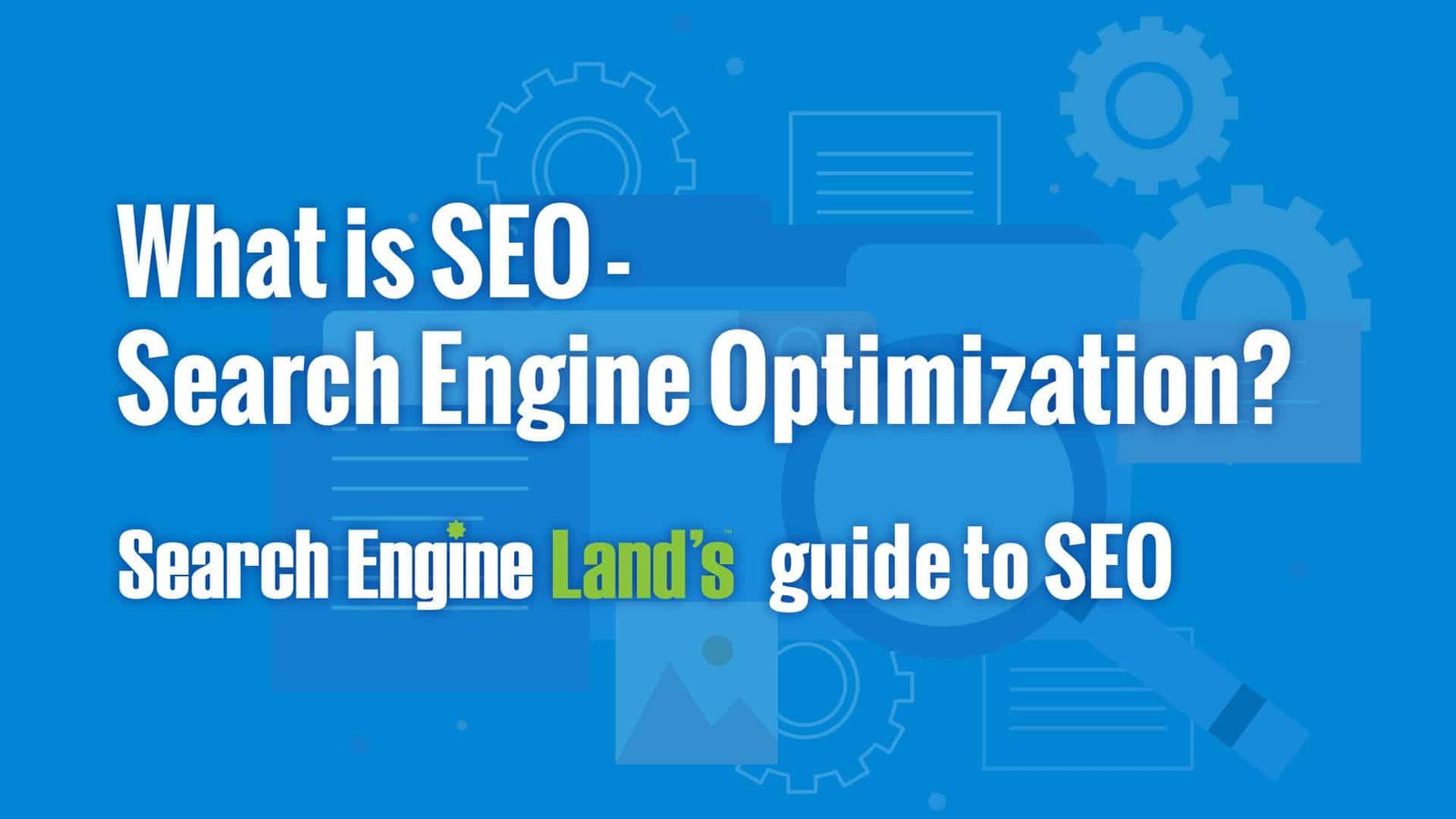
How to Optimize Your Website for Search Engines
Introduction
In today’s digital age, having a strong online presence is crucial for the success of any business. With millions of websites competing for attention, it’s important to ensure that your website stands out and ranks high in search engine results. This is where Search Engine Optimization (SEO) comes into play. SEO is the practice of optimizing your website to improve its visibility and ranking in search engine results pages (SERPs). In this comprehensive guide, we will explore the various strategies and techniques you can implement to optimize your website for search engines and boost your online presence.
Why is SEO Important?
Before we dive into the nitty-gritty of SEO, let’s first understand why it is important for your website. When users search for information or products online, they typically turn to search engines like Google, Bing, or Yahoo. These search engines use complex algorithms to determine the most relevant and high-quality websites to display in their search results. By optimizing your website for SEO, you increase your chances of appearing on the first page of search results, which significantly improves your visibility and drives organic traffic to your site.
Keyword Research and Optimization
One of the fundamental aspects of SEO is keyword research and optimization. Keywords are the words or phrases that users type into search engines when looking for specific information. By identifying and targeting the right keywords, you can optimize your website’s content to align with what users are searching for. Start by conducting thorough keyword research to identify relevant and high-volume keywords in your industry. There are various keyword research tools available, such as Google Keyword Planner, SEMrush, and Moz Keyword Explorer, that can help you find the best keywords for your website.
Once you have identified your target keywords, it’s important to strategically incorporate them into your website’s content. However, it’s crucial to avoid keyword stuffing, which is the excessive and unnatural use of keywords in an attempt to manipulate search engine rankings. Instead, focus on creating high-quality, informative, and engaging content that naturally incorporates your target keywords. This will not only improve your website’s SEO but also enhance the user experience.
On-Page Optimization
On-page optimization refers to the optimization of individual web pages to improve their visibility and ranking in search engine results. It involves optimizing various elements on your web pages, including title tags, meta descriptions, headings, URL structure, and internal linking. Here are some key on-page optimization techniques to consider:
1. Title Tags: The title tag is an HTML element that defines the title of a web page. It appears as the clickable headline in search engine results. Make sure to include your target keyword in the title tag and keep it concise and descriptive.
2. Meta Descriptions: Meta descriptions provide a brief summary of the content on a web page. Although they don’t directly impact search engine rankings, they play a crucial role in attracting users to click on your website. Craft compelling meta descriptions that include your target keyword and entice users to visit your site.
3. Headings: Use headings (H1, H2, H3, etc.) to structure your content and make it more readable for both users and search engines. Include your target keywords in the headings to signal their importance to search engines.
4. URL Structure: Create clean and descriptive URLs that include relevant keywords. Avoid using long and complex URLs that are difficult for users and search engines to understand.
5. Internal Linking: Incorporate internal links within your website’s content to improve navigation and help search engines discover and index your web pages. Use descriptive anchor text that includes relevant keywords.
By implementing these on-page optimization techniques, you can improve your website’s visibility and make it more search engine-friendly.
Off-Page Optimization
In addition to on-page optimization, off-page optimization plays a crucial role in improving your website’s SEO. Off-page optimization refers to the actions taken outside of your website to improve its visibility and authority. The most important off-page optimization technique is link building. Search engines consider backlinks from other reputable websites as a vote of confidence, indicating that your website is trustworthy and authoritative. Here are some effective link building strategies:
1. *Guest Blogging:* Write high-quality guest posts for other relevant websites in your industry. Include a link back to your website in the author bio or within the content itself.
2. *Social Media Engagement:* Engage with your audience on social media platforms and share your website’s content. Encourage others to share your content as well, which can lead to more backlinks.
3. *Influencer Outreach:* Collaborate with influencers or industry experts to create valuable content that includes links back to your website.
4. *Directory Submissions:* Submit your website to reputable online directories and business listings. This can help improve your website’s visibility and generate backlinks.
5. *Content Promotion:* Promote your content through various channels, such associal media, email marketing, and online communities. This can increase the chances of your content being shared and linked to by others.
Off-page optimization requires consistent effort and a strategic approach. By building high-quality backlinks and increasing your website’s authority, you can improve its search engine rankings and drive more organic traffic.
Mobile Optimization
With the increasing use of smartphones and tablets, it’s essential to optimize your website for mobile devices. Mobile optimization refers to the process of ensuring that your website is fully functional and user-friendly on mobile devices. Search engines prioritize mobile-friendly websites in their mobile search results, so it’s crucial to provide a seamless mobile experience for your users. Here are some key aspects of mobile optimization:
1. *Responsive Design:* Use responsive web design to create a website that automatically adjusts its layout and content based on the user’s device. This ensures that your website looks and functions well on any screen size.
2. *Fast Loading Speed:* Optimize your website’s loading speed for mobile devices. Slow-loading websites can lead to a poor user experience and higher bounce rates.
3. *Mobile-Friendly Navigation:* Simplify your website’s navigation for mobile users. Use clear and intuitive menus and buttons to make it easy for users to navigate your site on their mobile devices.
4. *Optimize Images:* Compress and optimize images to reduce their file size and improve loading speed on mobile devices.
By prioritizing mobile optimization, you can enhance the user experience and improve your website’s visibility in mobile search results.
Frequently Asked Questions (FAQ)
1. What is SEO?
SEO stands for Search Engine Optimization. It is the practice of optimizing your website to improve its visibility and ranking in search engine results pages (SERPs).
2. Why is SEO important for my website?
SEO is important because it helps your website rank higher in search engine results, which increases your visibility and drives organic traffic to your site.
3. How do I conduct keyword research for my website?
You can conduct keyword research using tools like Google Keyword Planner, SEMrush, and Moz Keyword Explorer. These tools help you identify relevant and high-volume keywords in your industry.
4. What is on-page optimization?
On-page optimization refers to the optimization of individual web pages to improve their visibility and ranking in search engine results. It involves optimizing elements like title tags, meta descriptions, headings, URL structure, and internal linking.
5. How can I build backlinks for my website?
You can build backlinks through strategies like guest blogging, social media engagement, influencer outreach, directory submissions, and content promotion. These techniques help increase your website’s authority and improve its search engine rankings.
Conclusion
Optimizing your website for search engines is a continuous process that requires time, effort, and strategic planning. By implementing the strategies and techniques mentioned in this guide, you can improve your website’s visibility, increase organic traffic, and ultimately achieve higher rankings in search engine results. Remember to focus on providing valuable and engaging content that meets the needs of your target audience. Stay up to date with the latest SEO trends and algorithm changes to ensure that your website remains optimized for search engines.
Also see
Essential tools for managing an online business

Welcome to hiremeboss.com, the ultimate freelance marketplace where talent meets opportunity. Our platform connects talented individuals with exciting projects, offering a secure and efficient environment to collaborate and get the job done. Join us today and experience the power of freelancing at its best.
Copyright 2023 - 2024 © Created By hiremeboss.com, All Rights Reserved.
3 Comments
[…] How to optimize your website for search engines […]
[…] How to optimize your website for search engines […]
[…] How to optimize your website for Search Engines […]